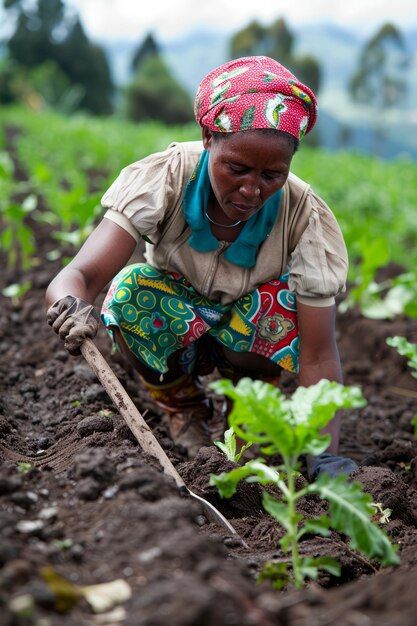
In the heart of rural Africa, a quiet revolution is taking root—led by women, nurtured by science, and brought to life through innovation. The landmark research supported by the Juno Evidence Alliance, and carried out by Dr. Lora Forsythe, Dr. Lucie Büchi, and Dr. Ida Tarjem, reveals what many women farmers have long known but few have had the power to prove: poor soil is not just a technical issue—it’s a social and gendered one.
We’ve walked the same dusty paths, sat on the same low stools under mango trees, and listened to countless women farmers echo the same refrain Dr. Forsythe heard across Africa:
"Tunajitahidi, lakini udongo wetu hauna rutuba. Hakuna msaada wa kutosha." ("We try, but our soil is depleted. There’s not enough support.")
That’s why we launched “Her Farm, Her Story”—a bold initiative by MazaoHub to reclaim the narrative around women, soil, and agronomy. Our mission is not only to analyze the soil beneath their feet but also to restore the value and voice of the women who work it every day.

Soil is Political – And So is Our Response
Just like the Juno-backed research urges us to do, MazaoHub sees beyond the “technical” nature of poor soils. We ask:
These are not just ecological questions. They are questions of equity, access, and power—and they require a radical, locally driven response.
Through our Farmer Excellent Centers (FECs) and our AI-powered Farm ERP, we help women farmers understand what their soil lacks—why, and how they can regenerate it using scientific guidance.
Evidence With Empathy: When Data Meets Dignity
MazaoHub collects hyperlocal soil data, crop analytics, and farmer histories. But unlike traditional top-down approaches, we return that knowledge to the farmers—especially women—in a way they can understand and use.
Women are taught not just to follow instructions, but to lead their farm decisions:
Results speak for themselves:

Her Farm, Her Story: Reclaiming Space in the Soil Conversation
Inspired by feminist research frameworks like those led by Dr. Tarjem, MazaoHub is deliberate about redefining what leadership means in agriculture which is power over decision-making at the plot level, household level, and eventually, community level.
MazaoHub’s model embraces what the Juno Alliance describes as intersectional and context-sensitive programming. We don’t bring in Western blueprints and impose them on African soil. We co-create solutions with local women-led cooperatives, youth groups, and indigenous knowledge holders. Our teams include rural agronomists, most of whom are women themselves, trained to deliver "tech-and-touch" services in local languages and local realities.
We invite governments, donors, research institutions, and private sector actors to move from rhetoric to real action. Let’s fund feminist agronomy, let’s elevate rural women’s knowledge, and let’s recognize that the health of our soil is bound to the freedom of the women who tend it.
Because when her soil heals—so does her future.
#HerFarmHerStory #FeministAgronomy #TechAndTouch #SoilJustice #MazaoHub #AfricanWomenLead #EvidenceWithEmpathy